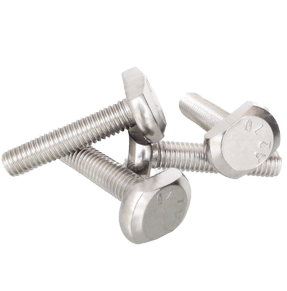

thick flat washers
Oct . 30, 2024 21:54 Back to list
thick flat washers
Thick Flat Washers An Essential Component in Engineering and Design
In the realm of engineering and construction, the significance of small components often goes unnoticed. Among these, thick flat washers play a crucial role in ensuring the stability and durability of assemblies. These washers, typically made from materials like steel, aluminum, or plastic, are flat discs with a hole in the center, designed to distribute the load of a threaded fastener, such as a bolt or screw, over a larger surface area. This distribution of load is essential in preventing damage to the material being fastened, thereby enhancing the overall structural integrity.
Thick flat washers are particularly valuable in applications that require additional strength, support, and resistance to wear. Their increased thickness compared to standard flat washers allows them to bear heavier loads without deforming. This makes them ideal for use in heavy machinery, automotive applications, and construction projects where safety and reliability are paramount. By providing a wider bearing surface, thick flat washers reduce the risk of embedment, which occurs when the fastener sinks into the material, potentially compromising the connection.
In addition to load distribution, thick flat washers serve to prevent galling. Galling is the wear and tear that happens when two metal surfaces interact, leading to deterioration of the materials. By providing a buffering layer between the fastener and the underlying surface, these washers help in minimizing friction and wear. This is especially important in high-stress environments where components are subjected to rigorous movements or vibrations.
thick flat washers

Moreover, thick flat washers are versatile in their applications. They can be used in various industries, from construction to electronics. In electrical applications, they help secure components while ensuring that electrical connections are stable and reliable. In carpentry, they can be used to fasten heavy wood beams and machinery securely, contributing to overarching safety protocols.
Choosing the right washer for a particular application is critical. Engineers must consider factors such as load requirements, environmental conditions, and compatibility with other materials. The effective use of thick flat washers not only enhances a project’s performance but also prolongs the life of the components involved.
In conclusion, while often overlooked, thick flat washers are indispensable components in the world of engineering and construction. Their ability to distribute loads, prevent wear, and enhance stability makes them a fundamental consideration in the design and execution of reliable and safe structures. As industries evolve and demand for durable solutions increases, the importance of these small yet mighty washers will undoubtedly continue to grow.
Latest news
-
Hot Dip Galvanized Bolts-Hebei Longze|Corrosion Resistance&High Strength
NewsJul.30,2025
-
High-Strength Hot-Dip Galvanized Bolts-Hebei Longze|Corrosion Resistance&High Strength
NewsJul.30,2025
-
Hot Dip Galvanized Bolts-Hebei Longze|Corrosion Resistance&High Strength
NewsJul.30,2025
-
Hot Dip Galvanized Bolts - Hebei Longze | Corrosion Resistance, High Strength
NewsJul.30,2025
-
High-Strength Hot Dip Galvanized Bolts-Hebei Longze|Corrosion Resistance, Grade 8.8
NewsJul.30,2025
-
Hot Dip Galvanized Bolts-Hebei Longze|Corrosion Resistance,High Strength
NewsJul.29,2025

